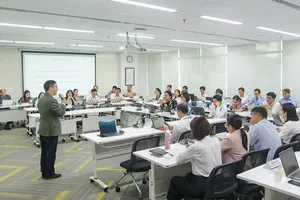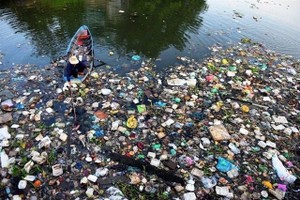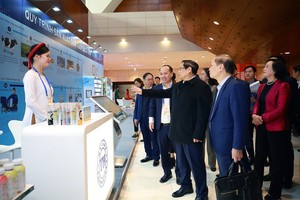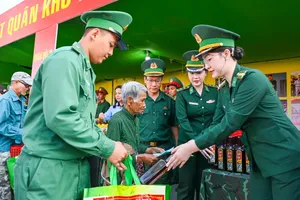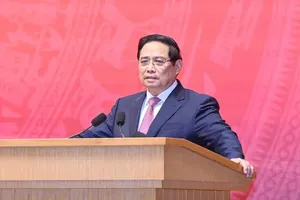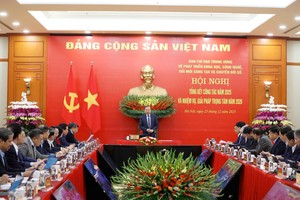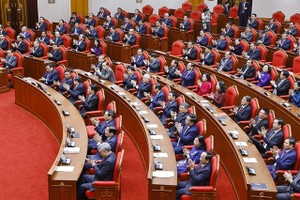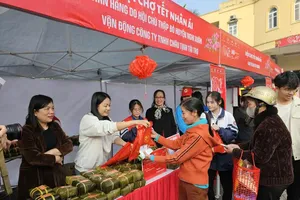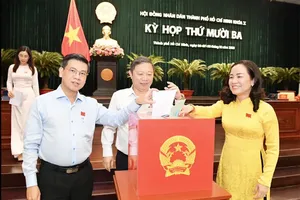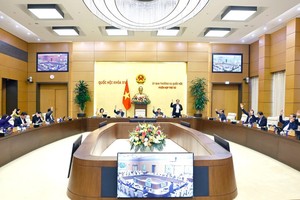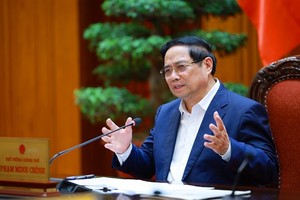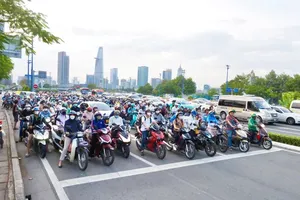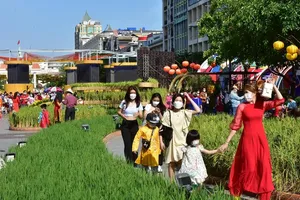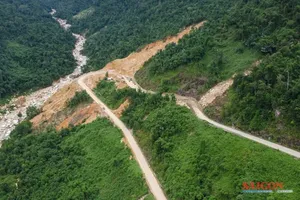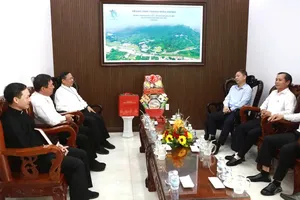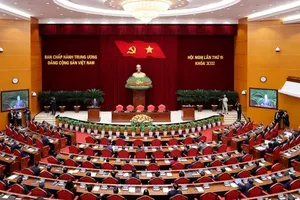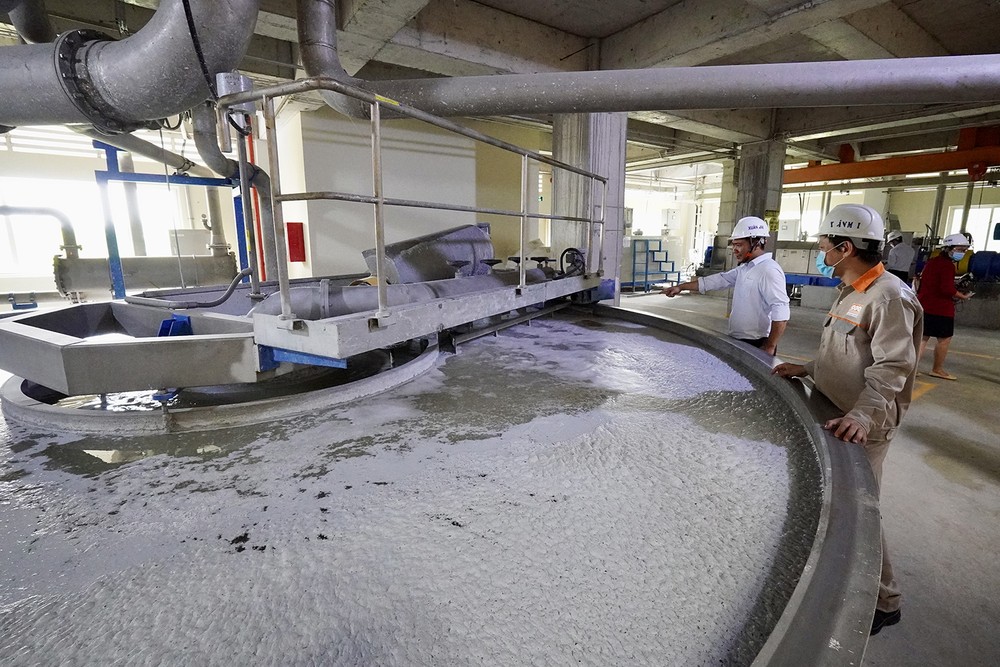
Once this movement becomes widespread, it will serve as one of the ‘green solutions’ for a circular economy and sustainable development.
Director Le Anh of Sustainable Development at Duy Tan Recycled Plastics Joint Stock Company revealed that since 2021, the company has exported recycled products to 12 countries, primarily the United States and the European Union. In 2023, the company exported approximately 18,000 tons of products; plus, in the first six months of this year, the company exported about 12,000 tons, mainly PET bottles (for mineral water and soft drinks) and HDPE (for cosmetics bottles).
Recognizing the global trend toward sustainable fashion and consumption, since 2017, Thanh Cong Textile - Investment - Trading Joint Stock Company has significantly invested in research and development for product lines made from recycled materials and eco-friendly substances.
Chairman Tran Như Tung of the Board of Directors said that the company's recycled t-shirts have been exported to Japan, Korea, and Europe. The company has used plastic bottles and agricultural by-products such as fruit peels and corn husks to upcycle into new clothing.
To achieve successful exports, in addition to quality factors, the company must meet the criteria and standards set by partners. These include using renewable energy, and rooftop solar power; implementing closed-loop green production processes; and having sustainable development plans, Chairman Tung revealed. Besides utilizing solar energy, the company is gradually transitioning from coal to biomass fuel for steam boilers to reduce CO2 emissions into the environment, he added
At the product display points of Loc Nhan Coffee Recycling Company Limited, the diversity and richness of products recycled from coffee grounds such as car air freshener, office air freshener; soap; coffee pellets with engraved images for gifts and souvenirs, compressed pellets for use in restaurants, eateries, and industrial plants surprised visitors. Company director Nguyen Tan Loc said that the above-mentioned products have been sold in the domestic market for more than a year and have also participated in many exhibitions and displays abroad. Currently, some foreign partners have contacted the company to export products and transfer recycling technology."
Globally, recycling is not merely a modern environmental trend but a time-honored practice that has evolved in response to changing societal needs and environmental challenges. This presents a significant opportunity for Vietnam's recycling industry. Implementing recycling brings numerous benefits to the environment and society, such as reducing the amount of waste sent to landfills and providing a valuable source of raw materials for manufacturing.
Chairman of the Vietnam Recycling Association Tran Viet Anh assessed that Vietnam's waste recycling market has great potential for development, as the country has a large amount of recyclable waste from agricultural and industrial production activities (especially the plastics industry). The daily amount of household waste generated is estimated at around 60,000 tons, and of 60,000 tons, approximately 55 percent can be recycled.
However, according to Mr. Tran Viet Anh, the development of the waste recycling market in Vietnam has fallen short of expectations due to technological limitations and inadequate recycling infrastructure. There is also a lack of diversity in utilizing waste materials for recycling, which industries require. Vietnam does not yet have fully defined recycling industrial clusters or zones, and source sorting practices are not consistent. Addressing these weaknesses could significantly boost the recycling market.
Regarding support policies for recycling businesses in Vietnam, Mr. Tran Thanh Nam from the Vietnam Environmental Protection Fund stated that the fund will provide loans with a fixed interest rate of 2.6 percent for environmental protection, clean energy, and recycling projects.
The maximum loan duration is 10 years, with up to 80 percent of the total investment amount. A project owner can ask for a maximum loan of VND36.6 billion and the loan will not exceed VND73.2 billion for each.
Several waste treatment, recycling, and reuse projects have so far received funding from the fund. Specifically, owners of 79 solid waste treatment projects in the fields of household, industrial, and hazardous waste with a total loan amount of VND1,344 billion while other 46 projects for purchasing waste collection and vehicles with a loan amount of VND 284 billion; and 9 recycling and waste reuse projects with a loan amount of VND 115 billion.
Director General of the Ministry of Natural Resources and Environment’s (MONRE) Department of Legal Affairs Phan Tuan Hung said that the new Law on Environmental Protection (LEP) and its guiding Decree No. 08/2022/ND-CP (“Decree 08“) were promulgated, providing a fundamental legal framework for extended producer responsibility (EPR). EPR, an extension of the responsibility of the producer and importer of a product to the disposal stage in the product’s life cycle, comprises two primary responsibilities: (i) responsibility for recycling products and packaging; and (ii) responsibility for waste collection and treatment. Recycling is an essential step toward a circular economy.
